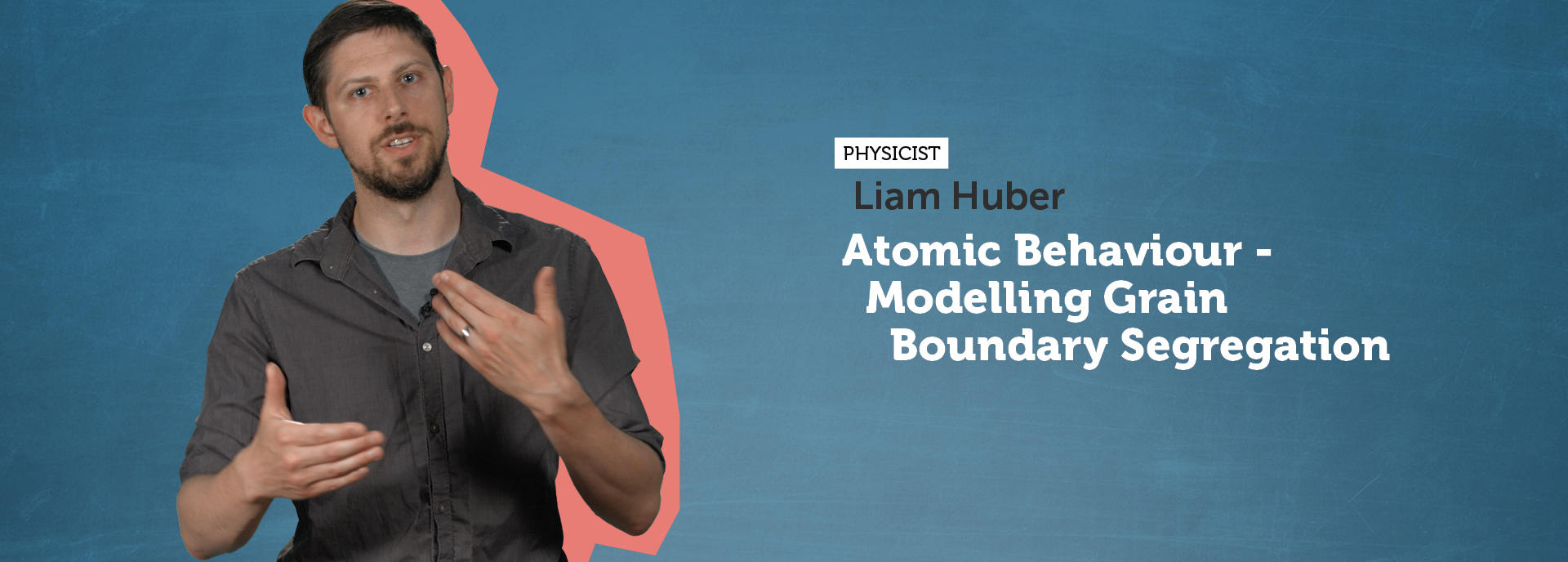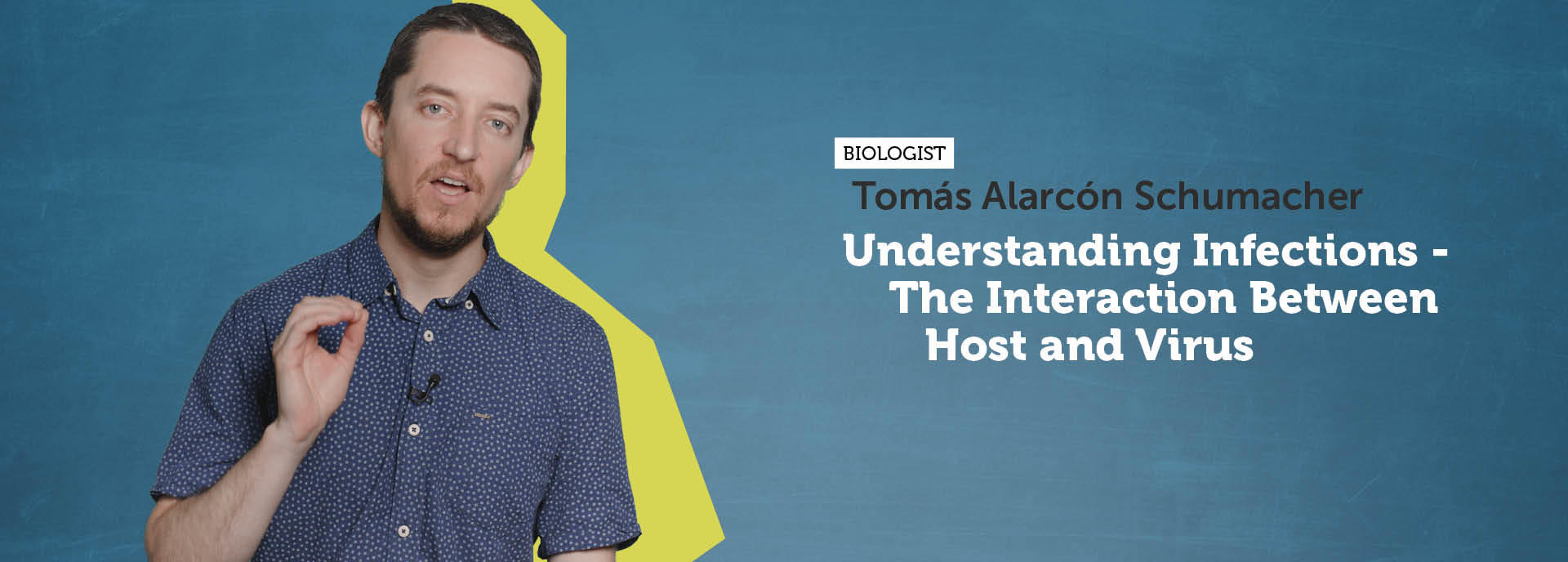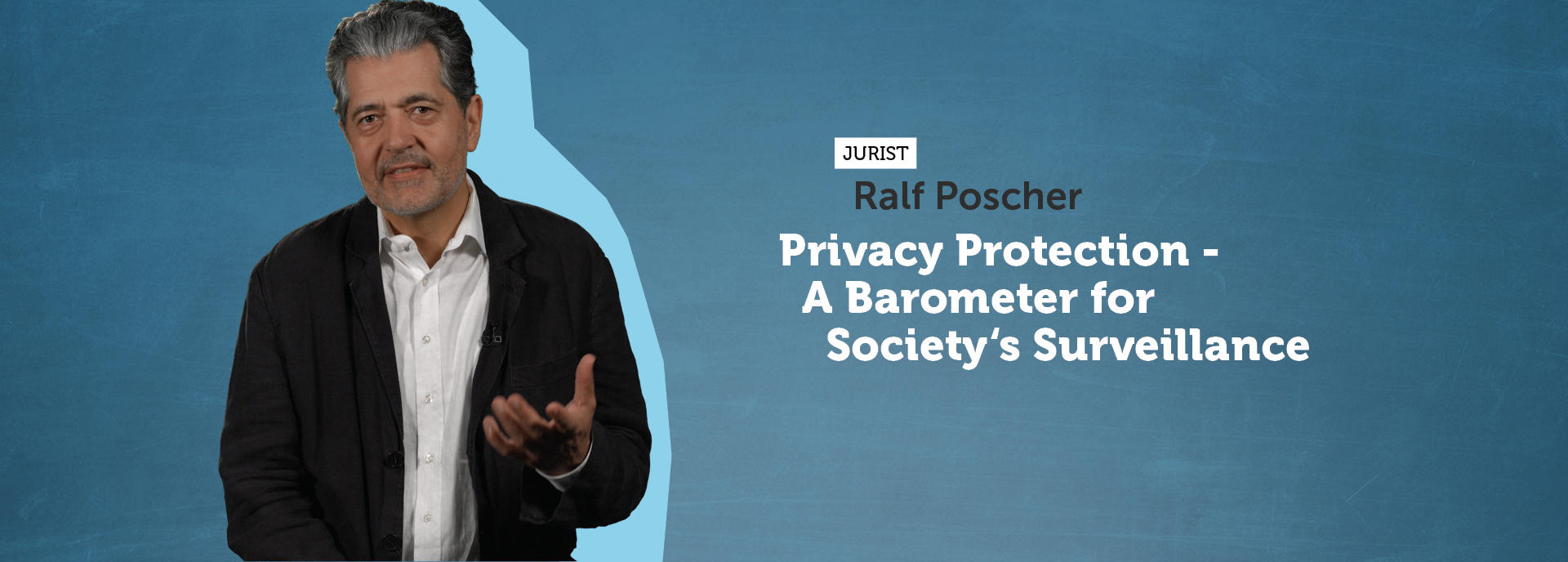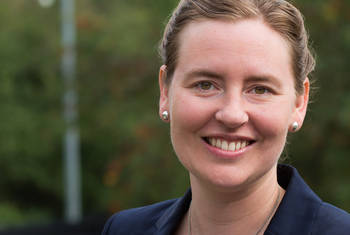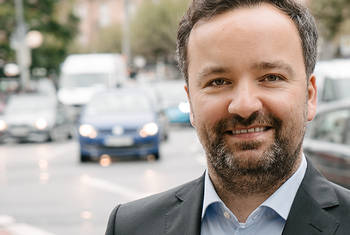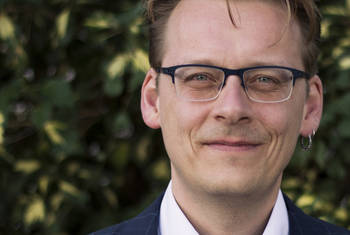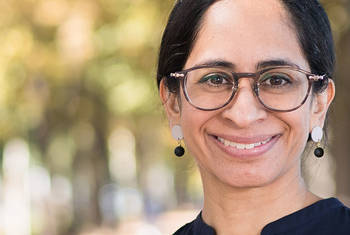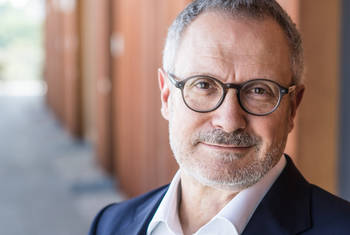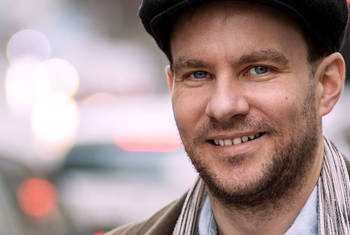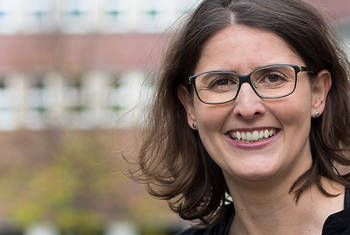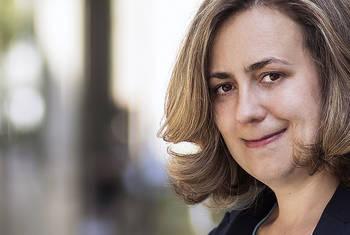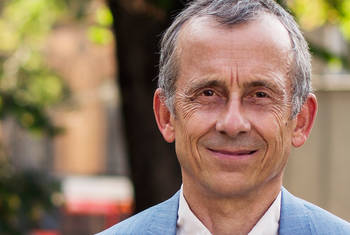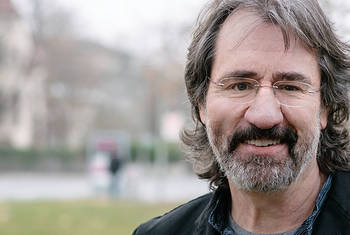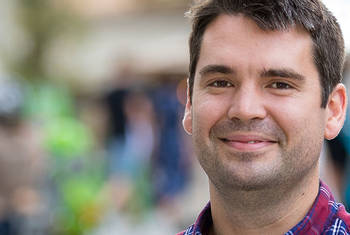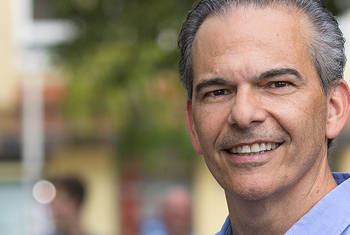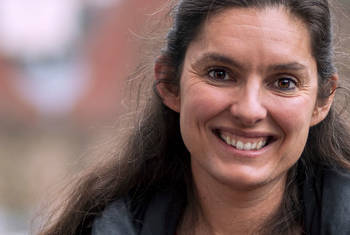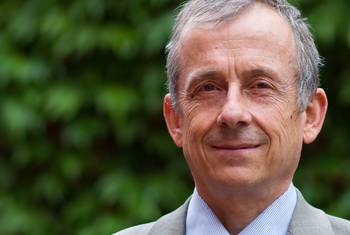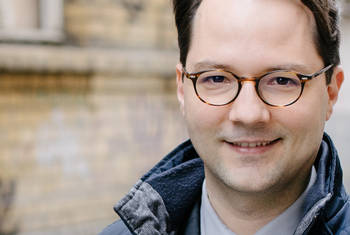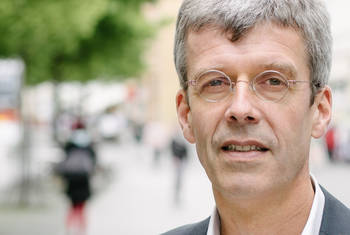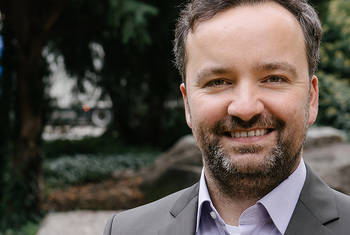Dental calculus, a calcified form of tooth plaque, can give detailed information about the diets, diseases and lifestyles of past humans. CHRISTINA WARINNER discusses how she gains new knowledge about the way human beings used to live, what they ate, and how their microbiome has evolved. Dental calculus is the richest known source of ancient DNA in the archaeological record, and it is the only part of the body that [...] Watch video
The classic image that tourists and travelers should only leave footprints and take photos is put into question by CARSTEN WERGINs academic investigation of how tourism has changed the world. In this video, he describes his interest in the question of how tourism impacts on particular places and people. In his field studies and during participant observations he has found that tourism is not only a global industry, it [...] Watch video
How Does Medieval Historians' Use of the Notion of 'Europe' Compare to Its Use in the Middle Ages?
The research presented in this video shows the need to reflect precisely the analytical notions and frameworks used when looking at medieval societies, and the limitations of reference to history when tackling contemporary questions. Some of the main findings of the comparative analysis of modern and medieval concepts of Europe conducted by KLAUS OSCHEMA are that ‘Europe’ and ‘Christianity’ were not used [...] Watch video
Where research on migration has classically centered on young people, studies of aging have generally focused on particular places. In this video, MEGHA AMRITH and her research group bring these two processes together, exploring the implications of growing older across borders, in a globalized world. Combining ethnographic field work across multiple sites with broader cultural studies, the research highlights the fact [...] Watch video
Modern humans colonized the whole planet and replaced all other hominids, such as Neanderthals. This evolvement raises interesting evolutionary questions concerning both species. The paleoanthropological research presented in this video looks at a moment in time when both co-existed. In order to find out about the differences between them, JEAN-JACQUES HUBLIN looks at both species’ use of technology, behavior, and [...] Watch video
There are more than 7,000 languages spoken worldwide. Many languages have evolved from a common ancestry line but we do not yet know where all the languages have come from and why there is such a great diversity. To find out how languages are related and form a family, linguists compare them by sifting through dictionaries, grammars or word lists. Recently, scholars have proposed automatic methods to compare languages [...] Watch video
Do Infants Understand Others as Mental Agents and Communicate Meaningfully Before They Acquire Language?
How do humans understand each other? One unique aspect is the evolution of more than six thousand languages on earth. In order to use language meaningfully a certain social cognitive infrastructure is needed. This infrastructure turns out to be prior to the acquisition of language in humans. The research presented in this video investigates how infants learn to communicate and how they understand other people’s [...] Watch video
Can Physical Education Lessons Promote the Intercultural Competence of School Children?
Our society is becoming more and more diverse concerning cultural, linguistic, ethnic and religious aspects. Therefore, children growing up in a pluralistic society need intercultural competence as a key skill. Schools are a prominent place where children can acquire this competence and some studies suggest that physical education is a particularly adept subject to transmit intercultural competence because it combines [...] Watch video
It is very difficult to learn something new if you haven’t unlearned what you have done before. In this video, CAROLIN GÖRZIG shows how we can better understand and influence the processes by which terrorist groups learn and unlearn violence. Drawing on insights provided by the deradicalization of organizations like the Provisional IRA (Irish Republican Army), and with fieldwork ongoing in territories including [...] Watch video
Decision-making in a complex world is a challenge. Some people are better at it than others. Why is this so? JOACHIM FUNKE focuses his research on identifying those character traits that can be trained or changed and that help people to improve their decision-making behavior. For this, Funke and his team need to identify the personality traits of their study participants and they use simulated situations to analyze their [...] Watch video
Human development is determined by biology and culture. Biologically seen, the history of evolution has brought us certain cognitive biases, whereas our cultural legacy is built through interactions with other people. OLIVIER MORIN pursues research at the intersection of these two legacies and his particular area of interest is cultural transmission. As he explains in this video, one thing we inherit from evolutionary [...] Watch video
Due to the current dire economic situation in Hungary many feel nostalgic about a time in their nation’s history when jobs were more secure. Young Hungarians, despite being highly qualified, have trouble finding work in their home country as well as in Europe. This led to high votes for the nationalist parties in the elections of 2014, who promise a return to the time of the great Austro-Hungarian Empire. This [...] Watch video
More people from more places are migrating to more places, leading to greater linguistic, religious and ethnic diversity, especially in urban areas. In this video, STEVEN VERTOVEC analyzes this super-diversification and considers how societies can best respond to the challenges it presents. With sources ranging from U.N. and World Bank migration data to more ethnographic, everyday research, Vertovec observes that [...] Watch video
In popular culture as in traditional archaeology, the tropical forest has been assumed to represent an environment inhospitable to humans. In this video, PATRICK ROBERTS challenges this view, demonstrating not only that Homo sapiens moved into tropical forests much earlier than previously thought but also that significant agricultural and urban societies existed in these places in the ancient past. Employing techniques [...] Watch video
What New Insights Can Archeology Provide Into Homo sapiens’ Emergence from Africa?
Traditional theory holds that Homo sapiens’ first moved Out of Africa into Eurasia along coastal routes some 60,000 years ago. In this video, MICHAEL PETRAGLIA explodes this theory demonstrating that modern humans emerged from Africa much earlier and, at least some of the time, via inland routes. Employing satellite imagery to identify ancient rivers and lakes in what are present-day desert regions, the team pinpointed [...] Watch video
Different ethnic groups have shaped the genetic makeup of today’s Europeans. Through migration from various regions of the world, the genetic material of humans who first arrived in Europe forty thousand years ago has seen drastic changes over the last ten thousand years. By analyzing D.N.A extracted from ancient bones, JOHANNES KRAUSE traces back the genetic ancestry of human beings, especially those living in Europe [...] Watch video
One of the most disputed issues in historical-comparative linguistics is the origin of the Japanese language and the question of whether it is related to the Transeurasian languages. MARTINE ROBBEETS has already shown in past research that it is possible to find a small core of evidence that relates Japanese as a daughter language of Transeurasian. This, she explains in this video, leads to new questions: How and why did [...] Watch video
The notion of a powerful god is often said to play a significant role in supporting the transition from small relatively equal hunter and gatherer societies to big hierarchical societies. However, as RUSSELL GRAY explains in this video, while there is a correlation between “big gods” and “big societies”, this is no causal relationship. By comparing the evolution of different forms of social organization in [...] Watch video
When studying human social and cultural diversity, there are usually distinctions being made based on world regions. This leads commonly to the assumption that there is a continental divide between Europe and Asia. However, researchers from many disciplines point out that Eurasia should rather be seen as a unity. In the comparative anthropological study CHRIS HANN presents in this video, he found commonalities across the [...] Watch video
When asked about the place of religion in their culture, many Chinese people will answer that China is a secular country with no major impact of religion. However, as PETER VAN DER VEER explains in this video, the Chinese are more religious than this perspective suggests and perform many rituals in their daily life. His research shows that this interpretation of Confucianism results from the historical influence of [...] Watch video
While doing anthropological fieldwork in Malaysia, DOMINIK MÜLLER noticed that the Islamic Party of Malaysia organizes events and activities that are frequently embellished with popular culture elements, such as bands playing on electric guitars. This seemed at odds with common Western assumptions that Islamic political movements tend to condemn popular culture as un-Islamic. Müller then investigated how the change of [...] Watch video
The 20th Century has been marked by a return to ethnic and religious affiliations and identifications which continue to be in the foreground of political discourse. The rise of religious groups is represented by the media as a turbulent phenomenon, which spikes new conflicts globally. These representations of collective identities are politically utilized. Resource conflicts and controversies about citizenship and [...] Watch video
How Is the UNESCO World Heritage Title Being Awarded and What Are Its Consequences?
The UNESCO World Heritage title has become a powerful global brand. It influences people’s decisions of where to travel and conveys prestige and national pride. CHRISTOPH BRUMANN and his research group investigated how this title is being awarded and what its consequences are on the ground at the chosen sites. Brumann explains in this video that using a two-fold anthropological approach, the researchers found that, [...] Watch video
Are there alternatives to the way Western culture perceives the world? This is a question that CARSTEN WERGIN is pursuing in his anthropological research in Northwest Australia. Recent developments and diverse global crises have shown that the idea that humanity can be master over nature needs to be seriously challenged. Participating in the Lurujarri Heritage Trail, guided by the indigenous group responsible for it – [...] Watch video


